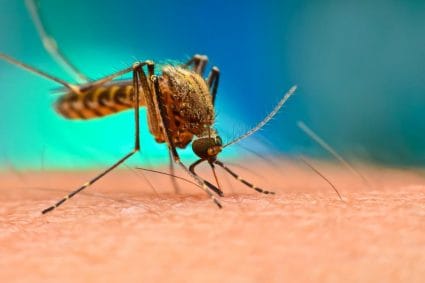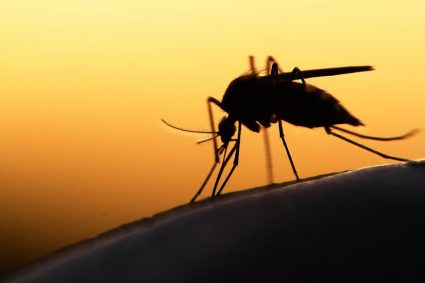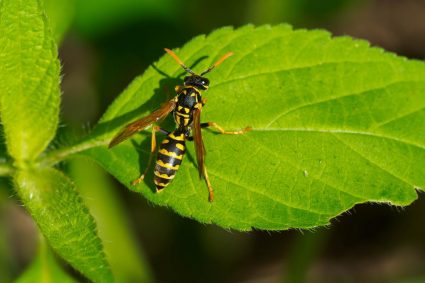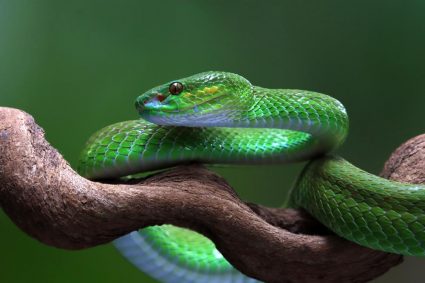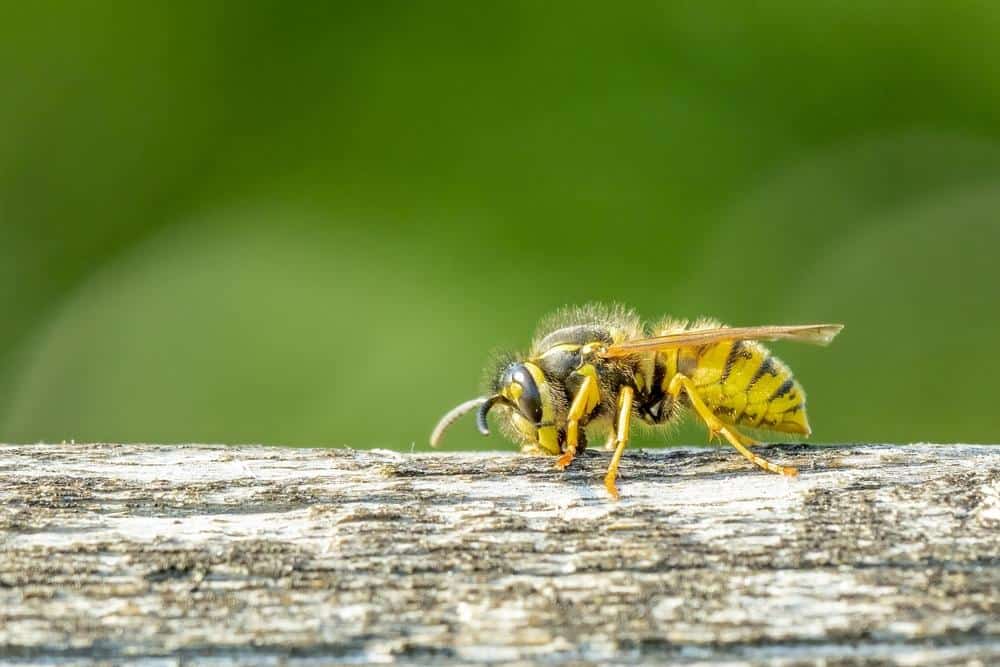
Bug zappers are a common sight in backyards and patios, especially during the warmer months when insects are out in full force. These devices are designed to attract and kill a variety of flying insects using ultraviolet light and a high-voltage electric current. But do bug zappers kill wasps, or are they more effective against other types of insects? Let’s delve into this topic and find out.
Yes, bug zappers can kill wasps, but they are not the most effective method for controlling these insects. Wasps are primarily attracted to food sources and sweet scents rather than light, which is what bug zappers use to attract insects. Therefore, while bug zappers may kill individual wasps, they are not the best solution for managing an entire wasp colony.
How Do Bug Zappers Work?
A bug zapper, also known as an electronic insect-control system, works by luring insects with ultraviolet light and then electrocuting them with a high-voltage electric current between wire-mesh grids. When an insect, such as a wasp, flies towards the light, it enters the space between the grids and completes the electric circuit. The voltage crosses the space between the circuits, instantly vaporizing the insect and producing the characteristic “ZAP” sound.
Are Bug Zappers Effective Against Wasps?
While bug zappers can kill wasps, they are not the most effective method for controlling these stinging insects. Unlike mosquitoes, which are attracted to UV light, wasps are primarily drawn to food sources and sweet scents rather than light. This means that bug zappers may not have the necessary allure to attract and eliminate wasps effectively.
Moreover, bug zappers are designed to target individual insects, making them less effective in dealing with entire wasp colonies. Since wasps are social insects that live in nests, eliminating a few individuals won’t solve the problem entirely.
To maximize the effectiveness of a bug zapper for wasp control, consider proper placement in areas with high insect activity, regular maintenance, and using the devices in conjunction with other wasp control methods.
What Are Some Top-Rated Bug Zappers?
While bug zappers may not be the most effective tool for controlling wasps, they can still control other annoying insects like mosquitoes and flies. Some of the top-rated bug zappers include:
- Aspectek 20W Electric Indoor Bug Zapper
- Black+Decker Outdoor Hanging Bug Zapper
- Flowtron BK-40D Insect Killer
- Aspectek Electronic Indoor Insect Killer
- BANPESTT Bug Zapper
Health and Environmental Impacts of Bug Zappers
Bug zappers can have both health and environmental impacts. From a health perspective, they can release bacteria, viruses, and potential allergens into the surrounding air. From an environmental standpoint, they indiscriminately kill insects, including beneficial ones such as beetles, moths, ants, and parasitic wasps that control other insect pests.
Alternatives to Bug Zappers for Wasp Control
Alternative strategies for controlling wasps include using handheld bug zappers, spatial repellents, mosquito repelling coils, cartridge-based lanterns, and sticky traps. These alternatives can be more effective in controlling specific insect species without causing harm to beneficial insects.
Safety Precautions When Using Bug Zappers
When using bug zappers for wasps, it’s essential to consider safety precautions such as proper placement, regular cleaning, meeting safety standards, understanding their effectiveness, considering their environmental impact, and ensuring personal safety.
How to Safely Remove a Wasp Nest
If you have a severe wasp infestation, it might be necessary to remove the wasp nest. This can be done by wearing protective clothing, approaching the nest in the evening, using a wasp-killing pesticide spray, and physically removing the nest. If the nest is in a hard-to-reach area or you’re unsure about how to remove it safely, contact a professional exterminator for assistance.
In conclusion, while bug zappers can kill wasps, they are not the most effective tool for combating these insects. Combining different methods and considering the use of professional extermination services may be the best way to control a wasp problem.
Frequently Asked Questions
Can bug zappers be used indoors?
Yes, some bug zappers are specifically designed for indoor use. However, it’s crucial to ensure they meet safety standards and are kept clean to avoid bacteria and allergen spread.
What are some other insects that bug zappers are effective against?
Bug zappers are particularly effective against insects attracted to UV light like mosquitoes and flies. This makes them useful in controlling these pests, especially during the warmer months.
Why are wasps not as attracted to bug zappers as other insects?
Wasps are primarily drawn to food sources and sweet scents rather than light. Therefore, they are less likely to be attracted to the UV light of bug zappers.
Can bug zappers be harmful to humans or pets?
Bug zappers can potentially release bacteria, viruses, and allergens into the air when they kill insects. Therefore, it’s essential to clean them regularly and place them in areas where their impact on humans and pets can be minimized.
What is the best time to approach a wasp nest for removal?
The best time to approach a wasp nest for removal is in the evening when wasps are less active and more likely to be inside the nest. However, it’s strongly advised to hire a professional if the nest is large or in a hard-to-reach area.

